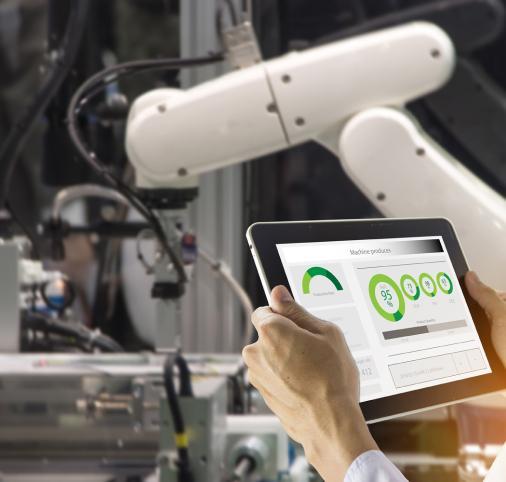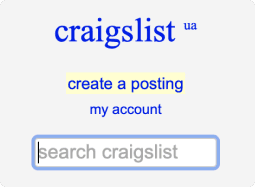What Is Data Aggregation and How to Make Business with Data
Get a better understanding of what is data aggregation
and how it can be used for your business purposes
on the DataOx blog.
Ask us to scrape the website and receive free data sample in XLSX, CSV, JSON or Google Sheet in 3 days
Scraping is the our field of expertise: we completed more than 800 scraping projects (including protected resources)
Table of contents
Estimated reading time: 5 minutes
Introduction
Do you know what data aggregation is and how it can be used in today’s business world? Will you be able to get useful information from large volumes of information, or does it still seem a bit too complex?
Well, you are not alone – just keep reading, and we’ll explain what is data aggregation and how you can benefit from it.
Data Aggregation and How It is Used
Data aggregation is the process of collecting raw info from various sources, then combining and presenting it in an understandable format for further analysis. The collected information and its analysis may provide you with a complete overview of the current state of your business and guide you through optimizing your company’s business and marketing strategies for better revenue.

For marketing purposes, data aggregation results from marketing campaigns. If you would like to compare the success of your marketing campaigns, you have to aggregate the information from each campaign separately and then make a comparison of their performance based on channels, target audience, budget, or other related criteria. Besides, thanks to collected information, you can have clear statistics about your customers' behavior, interests, or demographic that can help you form personalized messages and offers.
For financial purposes, you need to analyze the figures taken from financial reports and analytics, news, events, or pricing operations; this helps allocate the budget more consciously and overall affects the company’s financial position.
In the retail industry, compiling information is used for competitive research, including competitive price monitoring, product promotions, and offerings. Competitive research is the most essential measure for success in retail. This information can be gathered from competitors’ websites, social networks, or review sites.
In almost every industry, data aggregation is an efficient method to evaluate business growth. At the same time, the full process of collecting the required content is time-consuming — and without special platforms that automate the process, it can be very complex.
Why Data Aggregation is Important
In most cases, data aggregation and modeling may affect your business objectives. Based on analysis and insights from gathered content, you can make a comparison of marketing or investment channels and get a clear vision of where to spend your budget. By collecting all the figures, you can determine the source of traffic and the subsequent customer steps, which will help you evaluate marketing activity.
Let’s consider the following example.
You’re running LinkedIn and Google AdWords advertising. For both campaigns, you are paying $5 per lead, but AdWords is generating 100 leads and LinkedIn is generating 50. We can state that Google Ads seems a better channel, as it is generating more leads.
On the other hand, if we aggregate the records, we find out that 3 leads from 10 LinkedIn leads turn into a conversion, but Google AdWords makes 1 lead from 10 leads. Thus, thanks to it, we see that LinkedIn is a more profitable channel than Google AdWords, even if it is generating fewer leads.
Data aggregation is often used in practical areas like risk management, business strategy decisions, measuring KPIs, evaluating marketing campaigns, product development, and budget allocation.
There are two principal methods of gaining a financial benefit from data:
- To collect and analyze content for product development purposes, thus increasing sales.
- To use the gathered information to identify issues and obstacles and resolve them to improve business profitability.
Business Ideas Based on Data Aggregation
Today’s digital world is an aggregator of business ideas. Making money based on compiling information is an innovative business opportunity, and many companies are already practicing data monetization.

The fashion industry is a great example of a business based on upcoming trends, analysis, and forecasting. Online educational platforms can also benefit from compiling information. Since there are a lot of online courses, eBooks, tutorials, and blog posts enabling you to learn anything, a data aggregator can help you collect all relevant information, summarize it, and offer ideas for a new educational platform. HR activity based on big data analytics can help companies improve the quality of their hires, save costs because of improper hiring, and improve the hiring procedure overall.
So, considering all these opportunities, we can say that building up a business model based on data aggregation is a real, trendy method requiring some creative thinking.
Here are some examples of making money with the help of it.
Selling data to customers
Aggregating and modeling the information and selling it as helpful and valuable insights is a good working business model. Product or service-based reports and analytic records can be sold as a standalone service, helping your existing customers develop a new selling strategy by offering flexible pricing models.
Empower sales with data
Increasing sales is the primary goal of every company, and smart companies highly appreciate the chance to collect any content related to their customers. A salesforce empowered with valuable content can easily detect consumer problems, identify churning customers, and predict sales-qualified leads.
Data for marketing purposes
The best marketing campaigns are based on insights that inform us about our customers, their preferences, and issues. These insights will help companies optimize their marketing and advertising campaigns in accordance with customers’ expectations. Many ad media companies collect information about people’s interests and sell them to online advertisers.
FAQ
What is data aggregation?
Data aggregation is the collection of raw information from specified databases, websites, or other sources and the further compilation of this data into a more consumable and comprehensive medium for further analysis.
Why is data aggregation important?
Collection and aggregation of data in the form of convenient and understandable reports help to analyze trends, and patterns and create relevant conclusions based on them.
What are the types of data aggregation?
There is manual and automatic data aggregation. With manual data aggregation, employees manually extract information from sources, then sort it in excel sheets. Charts and diagrams are created on the basis of unified data. The automatic method replaces manual labor with software. Middleware collects, sorts, and processes data from prepared sources.
Conclusion
Today, data aggregation is one of the key methods to understanding your target market, staying in line with trends in your industry, enhancing customer satisfaction, and getting an edge over your competitors. Managing the massive amount of content gathered from social networks, customer purchase history, review websites, and web analytics is not a simple task.
At DataOx, we’ll help you automate the data aggregation process and uncover commercial opportunities from digital information. Schedule a free consultation with our expert and find out how the DataOx team can help your business through data aggregation or support open data business ideas.
Publishing date: Sun Apr 23 2023
Last update date: Wed Apr 19 2023




